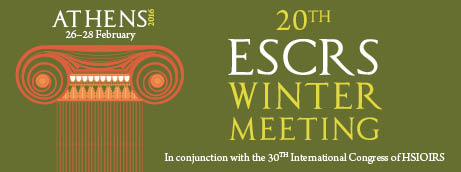Posters
(results will display both Free Papers & Poster)
Corneal wavefront-guided vs aberration-free photorefractive keratectomy for correction of myopic astigmatism
Poster Details
First Author: M.Bragheeth KUWAIT
Co Author(s):
Abstract Details
Purpose:
To evaluate the results of trans-epithelial photorefractive keratectomy (trans-PRK) with corneal wave-front guided customized ablation compared to aberration-free aspheric ablation for correction of compound myopic astigmatism.
Setting:
New Mowasat Hospital, Kuwait.
Methods:
A prospective interventional cohort study with matched retrospective control group. Fifty myopic patients with -1.50 dioptre or more astigmatism received corneal wave-front guided trans-PRK were included (group 1). A matching group of 50 myopic astigmatic patients treated with aberration-Free aspheric trans-PRK used as control group (group 2).
All treatments were performed by the same surgeon using SCHWIND AMARIS 750S Total-Tech Laser. Mitomycin C was used in all cases. The follow-up period was up to 12 months. Refractive predictability, safety, and efficacy of the two methods were compared.
Results:
Mean preoperative spherical equivalent (SE) refraction was -4.9 D in group 1 and -5.2 D in group 2. Mean SE at 12 months postoperatively was -0.1 (standard deviation [SD]: 0.34) in group 1 and -0.2 (SD: 0.59) in group 2, with 92%, and 88% within 0.5 D of target refraction, respectively. Refractive outcomes and regression at 12 months did not vary among groups (P>0.05). Mean log MAR uncorrected distance visual acuity at 12 months was 0.00 (SD: 0.05) in group 1 and 0.05 (SD: 0.09) in group 2, with significantly better vision in group 1.
Conclusions:
Both methods of Trans-PRK, using SCHWIND AMARIS 750S Total-Tech Laser, are effective, safe and predictable for correcting compound myopic astigmatism. The corneal wave-front guided ablation appeared more successful in improving the refractive results compared to aberration-free aspheric ablation. FINANCIAL DISCLOUSRE: NONE


